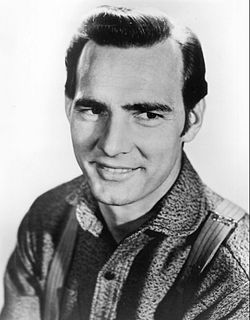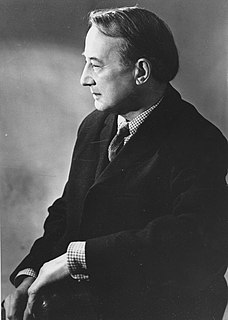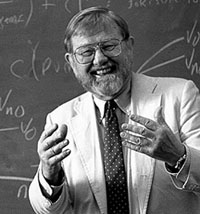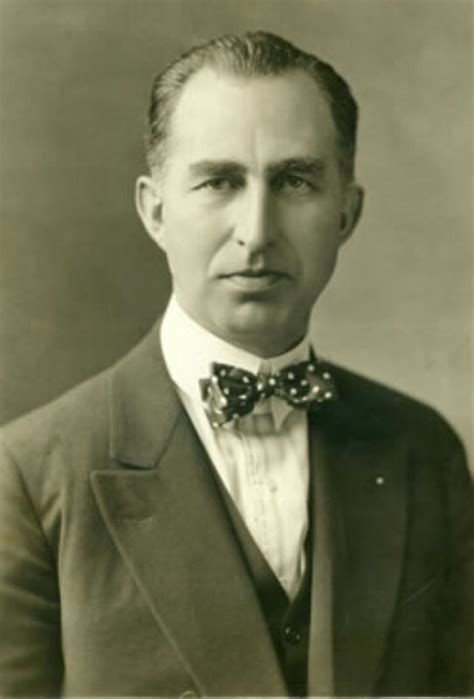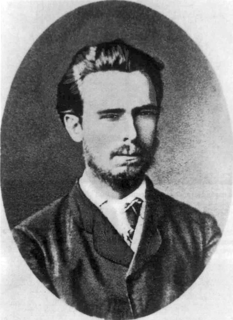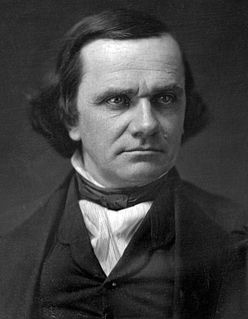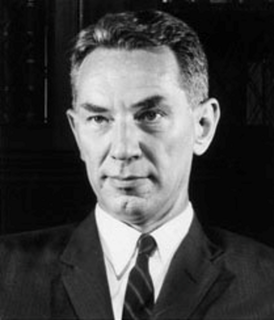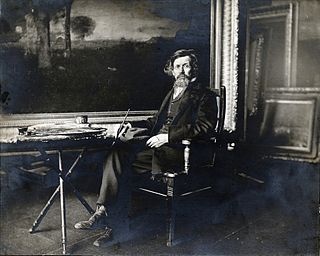Top 987 Civilized Quotes & Sayings - Page 16
Explore popular Civilized quotes.
Last updated on December 12, 2024.
The fields of clinical psychology and psychiatry exist specifically to help the emotionally unstable become more stable and lead happier, healthier lives. Unlike in the eras of Vincent Van Gogh and Abraham Lincoln, there is now professional help available for those who suffer from emotional illness. Treatment may require therapy or even medication, but hope is now available every single day in practically every city in the civilized world.
The artist must operate on the assumption that the public consists in the highest order of individual; that he is civilized, cultured, and highly sensitive both to emotional and intellectual contexts. And while the whole public most certainly does not consist in that sort of individual, still the tendency of art is to create such a public - to lift the level of perceptivity, to increase and enrich the average individual's store of values... I believe that it is in a certain devotion to concepts of truth that we discover values.
Every civilized human being, whatever his conscious development, is still an archaic man at the deeper levels of his psyche. Just as the human body connects us with the mammals and displays numerous relics of earlier evolutionary stages going back to even the reptilian age, so the human psyche is likewise a product of evolution which, when followed up to its origins, show countless archaic traits.
In civilized life, where the happiness, and indeed almost the existence, of man depends so much upon the opinion of his fellow-men, he is constantly acting a studied part. The bold and peculiar traits of native character are refined away or softened down by the levelling influence of what is termed good-breeding, and he practises so many petty deceptions and affects so many generous sentiments for the purposes of popularity that it is difficult to distinguish his real from his artificial character.
I think there will come a time when civilized people will look back in horror on our generation and the ones that have preceded it; the idea that we should eat other living things running around on four legs, that we should raise them just for the purpose of killing them! The people of the future will say 'meat-eaters' in disgust and regard us in the same way that we regard cannibals and cannibalism.
There is something on earth greater than arbitrary or despotic power. The lightning has its power, and the whirlwind has its power, and the earthquake has its power; but there is something among men more capable of shaking despotic thrones than lightning, whirlwind, or earthquake, and that is, the excited and aroused indignation of the whole civilized world.
The preservation of our free society in the years and decades to come will depend ultimately on whether we succeed or fail in directing the enormous power of human knowledge to the enrichment of our own lives and the shaping of a rational and civilized world order....It is the task of education, more than any other instrument of foreign policy to help close the dangerous gap between the economic and technological interdependence of the people of the world and their psychological, political and spiritual alienation.
This, I believe, is the appropriate image of human intercourse -- appropriate because it recognizes the qualities, the diversities, and the proper relationships of human utterances. As civilized human beings, we are the inheritors, neither of an inquiry about ourselves and the world, nor of an accumulating body of information, but of a conversation, begun in the primeval forests and extended and made more articulate in the course of centuries. It is a conversation which goes on both in public and within each of ourselves.
Russia, Russia - unwashed, backward, appealing Russia, so ashamed of your own backwardness, so orientally determined to conceal it from us by clever deceit. So sensitive and so suspicious in the face of the wicked, civilized west. I shall always remember you slyly, touchingly, but with great shouting and confusion - pumping hot water into our sleeping car in the frosty darkness of a December morning in order that we might not know, in order that we might never realize, to how primitive a land we had come.
The Great War differed from all ancient wars in the immense power of the combatants and their fearful agencies of destruction, and from all modern wars in the utter ruthlessness with which it was fought... Europe and large parts of Asia and Africa became one vast battlefield on which after years of struggle not armies but nations broke and ran. When all was over, Torture and Cannibalism were the only two expedients that the civilized, scientific, Christian States had been able to deny themselves: and they were of doubtful utility.
The money our society spends goes to appease those with power. As such, it goes mainly to those who don't need it. A nation that redistributes income to its poor buys a civilized and humane society, and it buys this with a miniscule share of the national income and a modest reduction in the supply of cleaning women. A country that subsidizes workers in the prime working years sacrifices, not a dust-free living room, but the very muscle of the national economy.
If the truth is boring, civilization is irksome. The constraints inherent in civilized living are frustrating in innumerable ways. Yet those with the vision of the anointed often see these constraints as only arbitrary impositions, things from which they-and we all-can be 'liberated.' The social disintegration which has followed in the wake of such liberation has seldom provoked any serious reconsideration of the whole set of assumptions-the vision-which led to such disasters. That vision is too well insulated from feedback.
[T]he most common and durable source of factions has been the various and unequal distribution of property. Those who hold and those who are without property have ever formed distinct interests in society. Those who are creditors, and those who are debtors, fall under a like discrimination. A landed interest, a manufacturing interest, a mercantile interest, a moneyed interest, with many lesser interests, grow up of necessity in civilized nations, and divide them into different classes, actuated by different sentiments and views.
I do consider the human capacity for violence is the central issue of the social contract. In boxing we have a peculiarly civilized form, in that boxers don't screech and holler. They don't use weapons. All of this seems to me quite amazing, because it is so disciplined, so controlled. It's ritualized, but absolutely genuine. And the cultural structure built around that ritual is absolutely fascinating to me. And it seems to me that boxing is one of those structures that is designed to promote harmony. I think that it is a stove that contains that fire in us and makes it safe and useful.
I fireballed him as he was seeking out treasure after we wiped out a band of orcs, playing rock-paper-scissors with each orc to determine who would prevail in combat. This is a lot more exciting than it sounds. It's quite civilized, and a little weird. You go running after someone through the woods, catch up with him, bare your teeth, and sit down to play a little roshambo.
Though tax records are generally looked upon as a nuisance, the day may come when historians will realize that tax records tell the real story behind civilized life. How people were taxed, who was taxed, and what was taxed tell more about a society than anything else. Tax habits could be to civilization what sex habits are to personality. They are basic clues to the way a society behaves.
It is common to assume that human progress affects everyone - that even the dullest man, in these bright days, knows more than any man of, say, the Eighteenth Century, and is far more civilized. This assumption is quite erroneous. . . . The great masses of men, even in this inspired republic, are precisely where the mob was at the dawn of history. They are ignorant, they are dishonest, they are cowardly, they are ignoble. They know little if anything that is worth knowing, and there is not the slightest sign of a natural desire among them to increase their knowledge.
Nowadays, if a man living in a civilized country (ha!) hears cannon blasts in his sleep, he will, of course, mistake them for thunderclaps, gun salutes on the feast day of the local patron saint, or furniture being moved by the slime-buckets living upstairs, and go right on sleeping soundly. But the ringing of the telephone, the triumphal march of the cell phone, or the doorbell, no: Those are all sounds of summons in response to which the civilzed man (ha-ha!) has no choice but to surface from the depths of slumber and answer.
It is like most other ancient books - a mingling of falsehood and truth, of philosophy and folly - all written by men, and most of the men only partially civilized. Some of its laws are good - some infinitely barbarous. None of the miracles related were performed. . . . Take out the absurdities, the miracles, all that pertains to the supernatural - all the cruel and barbaric laws - and to the remainder I have no objection. Neither would I have for it any great admiration.
The so-called Philosophy of India is even more blowsy and senseless than the metaphysics of the West. It is at war with everything we know of the workings of the human mind, and with every sound idea formulated by mankind. If it prevailed in the whole modern world we'd still be in the Thirteenth Century; nay, we'd be back among the Egyptians of the pyramid age. Its only coherent contribution to Western thought has been theosophy-and theosophy is as idiotic as Christian Science. It has absolutely nothing to offer a civilized white man.
Among civilized and thriving nations, on the contrary, though a great number of people do no labor at all, many of whom consume the produce of ten times, frequently of a hundred times more labour than the greater part of those who work; yet the produce of the whole labour of the society is so great, that all are often abundantly supplied, and a workman, even of the lowest and poorest order, if he is frugal and industrious, may enjoy a greater share of the necessaries and conveniencies of life than it is possible for any savage to acquire.
The broad rich acres of our agricultural plains have been long preserved by nature to become her untrammeled gift to a people civilized and free, upon which should rest, in well-distributed ownership, the numerous homes of enlightened, equal, and fraternal citizens... Nor should our vast tracts of so-called desert lands be yielded up to the monopoly of corporations or grasping individuals, as appears to be much the tendency under the existing statute.
It's frightening enough with a male actor and not a stunt person. If you accidently punch him with the wrong hand, then you've cost them a week's work and they've got a black eye or a lot of money goes on CG to get rid of it. That was nerve wracking, but it was very civilized. Women tend to immediately take responsibility if somebody messes up with both of us saying it's our fault. Men are quite happy for it to be your fault it seems like.
Don't talk like one of them. You're not! Even if you'd like to be. To them, you're just a freak, like me! They need you right now, but when they don't, they'll cast you out, like a leper! You see, their morals, their code, it's a bad joke. Dropped at the first sign of trouble. They're only as good as the world allows them to be. I'll show you. When the chips are down, these... these civilized people, they'll eat each other. See, I'm not a monster. I'm just ahead of the curve. -The Joker
Deep thinkers who look everywhere for the mysterious causes of poverty, ignorance, crime and war need look no further than their own mirrors. We are all born into this world poor and ignorant, and with thoroughly selfish and barbaric impulses. Those of us who turn out any other way do so largely through the efforts of others, who civilized us before we got big enough to do too much damage to the world or ourselves.
I take higher ground. I hold that in the present state of civilization, where two races of different origin, and distinguished by color, and other physical differences, as well as intellectual, are brought together, the relation now existing in the slaveholding States between the two, is, instead of an evil, a good—a positive good. . . . I hold then, that there never has yet existed a wealthy and civilized society in which one portion of the community did not, in point of fact, live on the labor of the other.
The civilized people of today look back with horror at their medieval ancestors who wantonly destroyed great works of art or sat slothfully by while they destroyed. We have passed this stage.... Here in the U.S. we turn our rivers and streams into sewers and dumping grounds, we pollute the air, we destroy our forests and exterminate fishes, birds and mammals - not to speak of vulgarizing charming landscapes with hideous advertisements. But at best it looks as if our people were awakening.
Until we start attacking the root of the historical problems of discrimination against Indians, and those Indians begin in these stereotypes, that Indians are less civilized than us, they're less able to exercise self-governing functions. Until we get to the roots of those problems, we're not going to change legislation. We're not going to change the hearts and minds of the Supreme Court.
To the average man, life presents itself, not as material malleable to his hand, but as a series of problems...which he has to solve...And he is distressed to find that the more means he can dispose of-such as machine-power, rapid transport, and general civilized amenities, the more his problems grow in hardness and complexity....Perhaps the first thing he can learn form the artists is that the only way of 'mastering' one's material is to abandon the whole conception of mastery and to co-operate with it in love: whosoever will be a lord of life, let him be its servant.
The moral authority in the Western world is gone. And it is gone forever. It is gone, not because of the criminal record--everybody's record is criminal. It is gone because you cannot do one thing and pretend you're doing another! None of us, who are sitting around in some of the true limbo out-of-space, which we call "now," waiting to be saved, civilized, or discovered, have the moral authority to say anything.
An important advance in the life of a people is the transformation of the religion of fear into the moral religion. But one must avoid the prejudice that regards the religions of primitive peoples as pure fear religions and those of the civilized races as pure moral religions. All are mixed forms, though the moral element predominates in the higher levels of social life. Common to all these types is the anthropomorphic character of the idea of God.
The United States of America are more of a concept than a historically evolved geographical conclusion, compared to European countries. I find this extremely interesting. Europe seems objectively more progressive and more civilized at a time when the U.S. is entering a regressive, oppressive, totalitarian era. You've got racial issues, the endurance of Puritanism, other seriously anachronistic religious fanaticisms, and it's all linked to conservatism. Despite all the unresolved deep-seated problems, the U.S. is still a country where it's less important where you come from than what you do.
Why should not we, who have renounced the king's authority, have our national preserves, where no villages need be destroyed, in which the bear and panther, and some even of the hunter race, may still exist, and not be "civilized off the face of the earth," - our forests, not to hold the king's game merely, but to hold and preserve the king himself also, the lord of creation, - not for idle sport or food, but for inspiration and our own true re-creation?
Obama, who is becoming more and more preacher-like, wants to be the Punisher-in-Chi ef of the Western World, the Avenger-in-Chie f. There is something oddly Roman about him. ... The lesser races must be civilized and they must be punished... Everyone outside the Roman Empire was called a barbarian. Everyone outside Obama’s empire is called a terrorist.
For the first time in six or seven thousand years, many people of goodwill find themselves confused about art. They want to enjoy it because enjoying art is something they expect of themselves as civilized persons, but they're unsure how to do so. They aren't even sure which of the visible objects are art and which are furniture, clothes, hors d'oeuvres, or construction rubble, and whether a pile of dead and decomposing rats is deliberate art or just another pile of decomposing rats.
The Revolutionist is a doomed man. He has no private interests, no affairs, sentiments, ties, property nor even a name of his own. His entire being is devoured by one purpose, one thought, one passion - the revolution. Heart and soul, not merely by word but by deed, he has severed every link with the social order and with the entire civilized world; with the laws, good manners, conventions, and morality of that world. He is its merciless enemy and continues to inhabit it with only one purpose - to destroy it.
I am now speaking of rights under the Constitution, and not of moral or religious rights. I do not discuss the morals of the people of Missouri, but let them settle that matter for themselves. I hold that the people of the slaveholding States are civilized men as well as ourselves, that they bear consciences as well as we, and that they are accountable to God and their posterity and not to us. It is for them to decide therefore the moral and religious right of the slavery question for themselves within their own limits.
Absolutely delightful, at first for its unspoiled picture of late-nineteenth-century Japan as seen through the eyes of three remarkable but very different Americans, [the missionary William Elliot Griffis [1843-1928], the scientist Edward Sylvester Morse [1838-1925], and the writer Lafcadio Hearn], and then for the marvelous reconstruction of how Japan worked on their minds, radically changing their perceptions of the country and the whole relationship between East and West--between the barbarian and the civilized. The book is a tour de force.
How many families, whose members have been dispersed and scattered far and wide, in the restless struggles of life, are then reunited, and meet once again in that happy state of companionship and mutual goodwill, which is a source of such pure and unalloyed delight; and one so incompatible with the cares and sorrows of the world, that the religious belief of the most civilized nations, and the rude traditions of the roughest savages, alike number it among the first joys of a future condition of existence, provided for the blessed and happy!
We create institutions and policies on the basis of the way we make assumptions about us and others. We accept the fact that we will always have poor people around us. So we have had poor people around us. If we had believed that poverty is unacceptable to us, and that it should not belong to a civilized society, we would have created appropriate institutions and policies to create a poverty-free world.
Loneliness is a hard thing to handle. I feel it, sometimes. When I do, I want it to end. Sometimes, when you're near someone, when you touch them on some level that is deeper than the uselessly structured formality of casual civilized interaction, there's a sense of satisfaction in it. Or at least, there is for me. It doesn't have to be someone particularly nice. You don't have to like them. You don't even have to want to work with them. You might even want to punch them in the nose. Sometimes just making that connection is its own experience, its own reward.
English literature, from the days of the minstrels to the Lake Poets,--Chaucer and Spenser and Milton, and even Shakespeare, included,--breathes no quite fresh and, in this sense, wild strain. It is an essentially tame and civilized literature, reflecting Greece and Rome. Her wildness is a greenwood, her wild man a Robin Hood. There is plenty of genial love of Nature, but not so much of Nature herself. Her chronicles inform us when her wild animals, but not the wild man in her, became extinct.
Man knows that there are in the soul tints more bewildering, more numberless, and more nameless that the colors of an autumn forest....Yet he seriously believes that these things can every one of them , in all their tones and semi-tones, in all their blends and unions, be accurately represented by an arbitrary system of grunts and squeals. He believes that an ordinary civilized stockbroker can really produce out of his own inside noises which denote all the mysteries of memory and all the agonies of desire.
In civilized communities, property as well as personal rights is an essential object of the laws, which encourage industry by securing the enjoyment of its fruits; that industry from which property results, and that enjoyment which consists not merely in its immediate use, but in its posthumous destination to objects of choice, and of kindred affection. In a just and free government, therefore, the rights both of property and of persons ought to be effectually guarded.
How can I be expected to believe that this same racial discrimination which has been the cause of so much injustice and suffering right through the years, should now operate here to give me a fair and open trial?....consider myself neither morally nor legally obliged to obey laws made by a Parliament in which I am not represented. That the will of the people is the basis of the authority of government, is a principle universally acknowledged as sacred throughout the civilized world.
There is scarcely room for doubt that something in the psychological relation of a mother-in-law to a son-in-law breeds hostility between them and makes it hard for them to live together. But the fact that in civilized societies mothers-in-law are such a favourite subject for jokes seems to me to suggest that the emotional relation involved includes sharply contrasted components. I believe, that is, that this relation is in fact an 'ambivalent' one, composed of conflicting affectionate and hostile impulses.
It seems important that the social value factor be more generally recognized as a powerful causal agent in its own right and something to be dealt with directly as such. No more critical task can be projected for the 1970s than that of seeking for civilized society a new, elevated set of value guidelines more suited to man's expanded numbers and new powers over nature, a frame of reference for value priorities that will act to secure and conserve our world instead of destroying it.
I believe-and human psychologists, particularly psychoanalysts should test this-that present-day civilized man suffers from insufficient discharge of his aggressive drive. It is more than probable that the evil effects of the human aggressive drives, explained by Sigmund Freud as the results of a special death wish, simply derive from the fact that in prehistoric times intra-specific selection bred into man a measure of aggression drive for which in the social order today he finds no adequate outlet.
The time must come inevitably when mankind shall surmount the imbecility of religion, as it has surmounted the imbecility of religion's ally, magic. It is impossible to imagine this world being really civilized so long as so much nonsense survives. In even its highest forms religion embraces concepts that run counter to all common sense. It can be defended only by making assumptions and adopting rules of logic that are never heard of in any other field of human thinking.
There is nothing in either savage or civilized history that is more utterly complete, more remorselessly sweeping than the Father of Mercy´s campaign among the Midianites. The official report deals only in masses, all the virgins, all the men, all the babies. all ´creatures that breathe,´ all houses. all cities. It gives you just one vast picture ...as far as the eye can reach, of charred ruins and storm-swept desolation... Would you expect this same conscienceless God, this moral bankrupt, to become a teacher of morals, of gentleness, of meekness, of righteousness, of purity?
Individualism regards man - every man - as an independent, sovereign entity who possesses an inalienable right to his own life, a right derived from his nature as a rational being. Individualism holds that a civilized society, or any form of association, cooperation or peaceful co-existence among men, can be achieved only on the basis of the recognition of individual rights - and that a group, as such, has no rights other than the individual rights of its members.
An author, like any other so-called artist, is a man in whom the normal vanity of all men is so vastly exaggerated that he finds it a sheer impossibility to hold it in. His over-powering impulse is to gyrate before his fellow men, flapping his wings and emitting defiant yells. This being forbidden by the police of all civilized nations, he takes it out by putting his yells on paper. Such is the thing called self-expression.
My position as regards the monied interests can be put in a few words. In every civilized society property rights must be carefully safeguarded; ordinarily and in the great majority of cases, human rights and property rights are fundamentally and in the long run, identical; but when it clearly appears that there is a real conflict between them, human rights must have the upper hand; for property belongs to man and not man to property.
Valentine had long ago observed that in a society that expected chastity and fidelity, like Lusitania, the adolescents who controlled and channeled their youthful passions were the ones who grew up to be both strong and civilized. Adolescents in such a community who were either too weak to control themselves or too contemptuous of society's norms to try usually ended up being either sheep or wolves- either mindless members of the herd or predators who took what they could and gave nothing.
I think now it's a very odd time in politics. It should be mostly about good governing. We need a government, not politics. Because there's too much politics. Of course there should be debate. But there seems to be so much pettiness and not enough good faith. It is civilized to agree to disagree and this idea is slowly disintegrating. The great statesmen of the past knew this, and I think it helps drive civilization.
I was standing next to a famed geo-politician when the first news of the Argentine attack [on the Faulkland Islands] was received, and heard him muse incredulously: "An old-fashioned naval battle. A war between two civilized nations, perhaps with even a declaration of war, and later a peace conference. Wow." No hostages, no nukes, no ideologies, no religious fanaticism; just a fair-and-square war over national interests - hard to believe, in this day and age.
The highest art is where has been most perfectly breathed the sentiment of humanity...Some persons suppose that landscape has no power of communicating human sentiment. But this is a great mistake. The civilized landscape peculiarly can: and therefore I love it more and think it more worthy of reproduction than that which is savage and untamed. It is more significant. Every act of man, every thing of labor, effort, suffering, want, anxiety, necessity, love, marks itself wherever it has been.
[Walt] Whitman and [humanist educator John] Dewey tried to substitute hope for knowledge. They wanted to put shared utopian dreams - dreams of an ideally decent and civilized society - in the place of knowledge of God's Will, Moral Law, the Laws of History, or the Facts of Science.... As long as we have a functioning political left, we still have a chance to achieve our country, to make it the country of Whitman's and Dewey's dreams.
Today’s milestone is human madness. Politics is a part of it, particularly in its lethal outbursts. Politics is not, as it was for Hannah Arendt, the field where human freedom is unfurled. The modern world, the world of world war, the Third World, the underground world of death that acts upon us, do not have the civilized splendor of the Greek city state. The modern political domain is massively, in totalitarian fashion, social, leveling, exhausting. Hence madness is a space of antisocial, apolitical, and paradoxically free individuation




